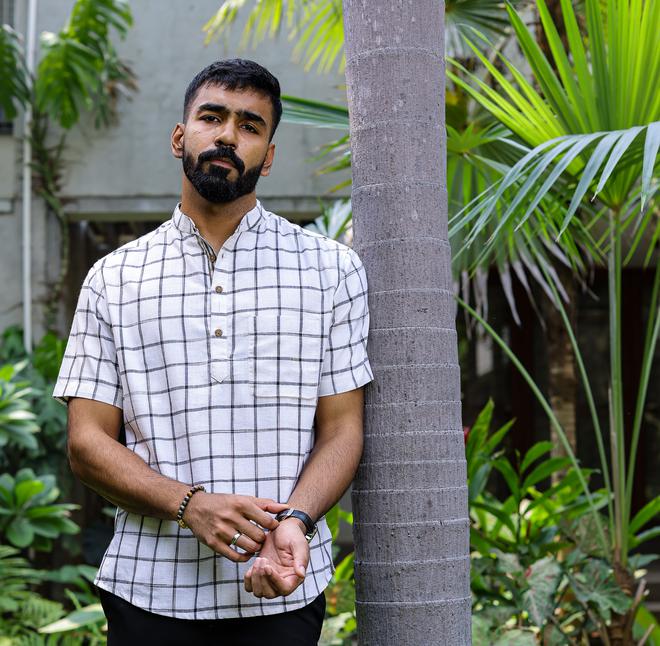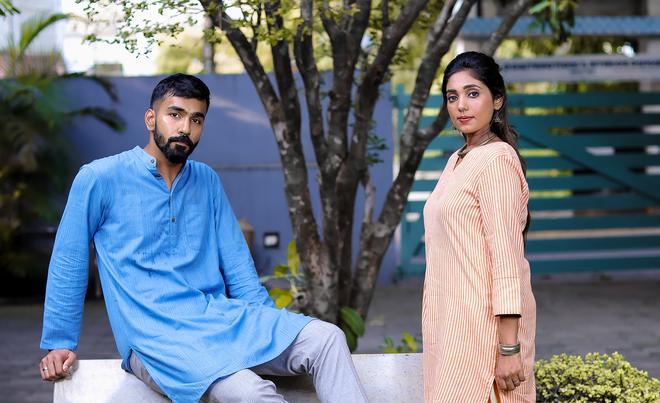Woven intricately with the history of India’s freedom movement, khadi’s prominence in the fashion and textile industry has been both, evolutionary and revolutionary. Over the years, khadi’s visibility has transcended from the runways, with fashion designers like Divyam Mehta, Suket Dhir and Shruti Sancheti exhibiting their khadi edits at Lakme Fashion Week X FDCI earlier this year, to prêt-a-porter labels. Gandhigram’s ready-to-wear khadi brand Samhita is the latest addition to khadi apparel. The brand, developed in collaboration with the Centre of Excellence for Khadi (COEK) and NIFT, Delhi, will showcase its inaugural collection at The Folly, Amethyst, in Chennai on October 20 and 21.

Established in 1947 under the under the aegis of Mahatma Gandhi, Gandhigram Trust, which champions the cause of building a self-reliant rural India, has already tested khadi’s mettle as a fabric. It was only some five years ago, when the idea of making a prêt collection struck the trust’s Deputy CEO Shibu Shankaran and it started making plain shirts and kurtas for men. “Two years ago, Gandhigram was chosen as one of the five centres by COEK, a collaboration between Khadi and Village Industries Commission and NIFT, Delhi. They took our fabric and made apparel designs; we selected a few designs and made samples. That got us excited and we started working on a full-fledged khadi garment brand Samhita, the first collection of which will be showcased for the first time in Chennai,” says Shibu.
To make khadi, the weavers of Gandhigram use Ambar Charkha. It is used to spin, and handweave the yarn. The centre uses both chemical and natural dyeing processes. There are over 300 artisans, spread over five centres who are involved in spinning, weaving and dyeing.

Textile designer Aditi Jain, who has been associated with Gandhigram for over five years now, shares the process in detail. “Gandhigram procures cotton from farmer cooperatives in and around Dindigul district, Tamil Nadu, and some varieties are sourced from Kerala. They are all processed at Gandhigram’s centre in Chinnalapatti, where dust is removed from cotton and sliver is produced. The sliver goes to spinners, comprising women and one visually-impaired man, who then convert it to yarn with Ambar Charkha which uses eight rovings. The yarn then goes for dyeing and weaving,” she explains.
Though khadi is best known for its coarse texture, it can be made finer by playing with different counts; the trick, says Aditi, lies in the counts used to wave the fabric. “We have fabrics in four counts: 33, 56, 72 and 100. While 33-count khadi is the coarsest, ideal for making pants, the 100-count khadi fabric is the finest and is used for saris,” she adds. The weave determines the design of the fabric, which comes in strips, checks and ‘firefly’. “Firefly is a mixed-thread weaving, mostly called space-dyeing, but we at the Gandhigram call it firefly,” she shares. As for tailoring, while the training of the women at Sivasailem is underway, we have started the production for the first collection with a manufacturing unit in Chennai, informs Aditi, while adding: “Our women tailors in Sivasailem have already started sampling for the next collection”.

Samhita’s range includes 25 styles with three-four colour variants for tops, kurtas, dresses and jumpsuits for women, and shirts and kurtas for men. You could also expect saris, stoles, shawls, towels and dhotis. Fashion designer Deepak VK, who has been associated with Gandhigram for nearly six months, says, “We have a wide range of stylish designs with trendy cuts which will appeal to a wide audience. We want khadi to be trending and the next thing in fashion worn and endorsed by the young generation. Khadi’s production time is long. It takes nearly one day for one person to make three metres of khadi. But since the fashion world is abuzz with sustainable clothing, khadi, a fabric that traces its roots to India’s freedom struggle and is traditional to the very core, spells sustainability with every thread.”
Check out Samhita’s inaugural collection at The Folly, Amethyst, in Chennai on October 20 and 21 from 11am to 7.30pm. Priced upwards of ₹1,500.







